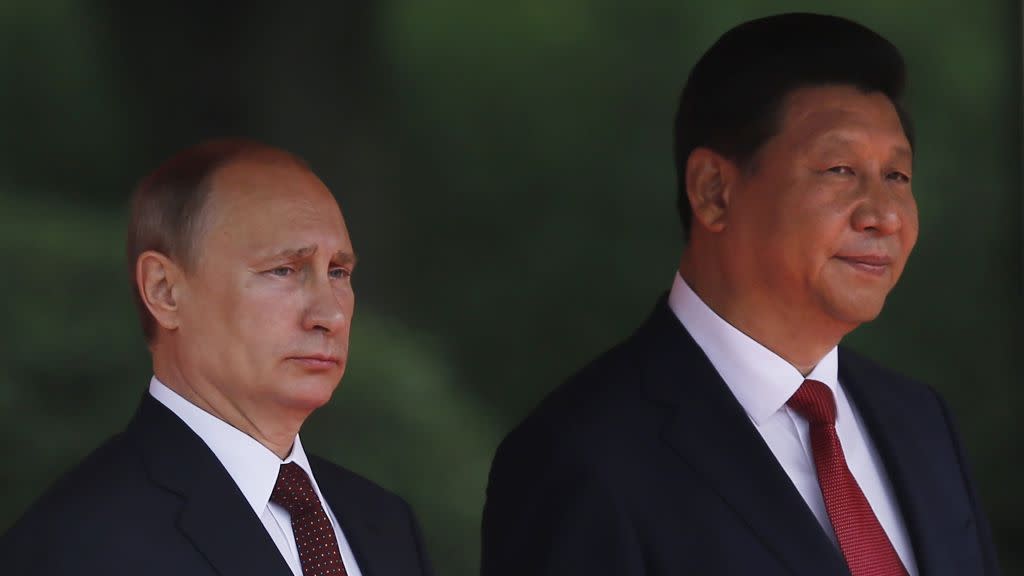What Russia and China wanted to do about the chemical weapons attack in Syria

The US on Thursday (April 6) launched dozens of missiles at a Syrian military airfield, in retaliation for the Assad regime’s alleged use of chemical weapons that killed dozens of civilians earlier this week. US officials have said they have no doubt Syrian President Bashar al-Assad was responsible, although Syria has denied using chemical weapons. On the same day as the US strike, the UN’s top decision-making body failed to do anything about the suspected toxic gas attack. In general, the body has been unable to act on Syria, mainly due to vetoes by Russia and China.
Amnesty International said in February that the two nations “displayed a callous disregard for the lives of millions of Syrians” by vetoing a resolution at that time over Syria’s suspected use of chemical weapons. Over the past six years, Russia has voted seven times against UN Security Council resolutions on Syria and the fighting raging there. A Russian ally, China has wielded its veto power six times.
After this week’s chemical attack, Russia and China took similar, but slightly different stances about what should happen next. The latest chemical attack is reported to have taken place early Tuesday (April 4) in a rebel-held area in northwestern Syria, and killed some 70 people, including children. Both nations said a thorough investigation of the attack was needed before any party takes action.
On April 6, Kremlin said in a statement that “it is unacceptable to make groundless accusations against any party until a thorough and objective international investigation has been conducted.” Russia has also suggested that the deaths occurred as a result of gas being released from an airstrike on a chemical weapons factory operated by terrorists, CNN has reported.
China’s Foreign Ministry, meanwhile, has stressed its position against “the use of chemical weapons by anyone under any conditions for any purposes,” and called for an “objective and impartial” investigation to identify those behind the attack in Syria. In a speech at a Security Council emergency meeting, China’s UN ambassador Liu Jieyi said China was “deeply shocked” (link in Chinese) by the use of chemical weapons in Syria, adding that after an investigation by an independent body, the perpetrators should be brought to justice. Liu also accused his UK counterpart of “distorting the solemn position of other countries” by blaming the latest gas attack on Russia and China’s previous vetoes in February.
In the Thursday meeting, AFP reported, the UN Security Council discussed three separate draft resolutions relating to a full investigation by an independent Hague-based body which monitors the implementation of a UN convention against chemical weapons. But it didn’t vote on any of them. According to AFP, Britain, France and the US proposed a draft resolution that calls for Syria to hand over information to investigators about its military operations on the day of the attack.
Russia suggested it could veto the measure, and instead proposed a rival draft that doesn’t demand the regime’s cooperation. Ahead of the Thursday meeting, a spokeswoman with the Russian foreign ministry said that the US, France and Britain had “planted” an anti-Syrian draft resolution at the UN Security Council, using “exclusively fake news and fabricated reports planted in the media.” Russia’s deputy UN ambassador Vladimir Safronko echoed that line at a Security Council meeting.
The third draft, from non-permanent Security Council members, is a compromise resolution that has met a cool response from the US but has won support from China, perhaps because Beijing fears the fallout of supporting ally Russia on its resolution, but also doesn’t want to sign on to the US-proposed one.
The US airstrike, in stark contrast to president Donald Trump’s earlier non-interference stance over the Syria issue, was likely a major surprise to both Russia and China. The Pentagon said it had notified Russia shortly before the bombing, but it is unclear when Chinese president Xi Jinping—who was having a dinner with Trump during the attack—was made aware of the action.
The Kremlin said on Friday (April 7) that the US strike on Syria is an “act of aggression against a sovereign country violating the norms of international law.” The country’s foreign minister drew a comparison with the military invasion of Iraq in 2003, according to the Interfax news agency. This should make US Secretary of State Rex Tillerson’s visit to Moscow next week intense, especially if these questions come up (if the visit isn’t postponed, that is).
China, whose leader will be having a second day of talks with Trump on Friday, repeated on April 7 that it is opposed to any use of chemical weapons and again called for an investigation.

Sign up for the Quartz Daily Brief, our free daily newsletter with the world’s most important and interesting news.
More stories from Quartz:

